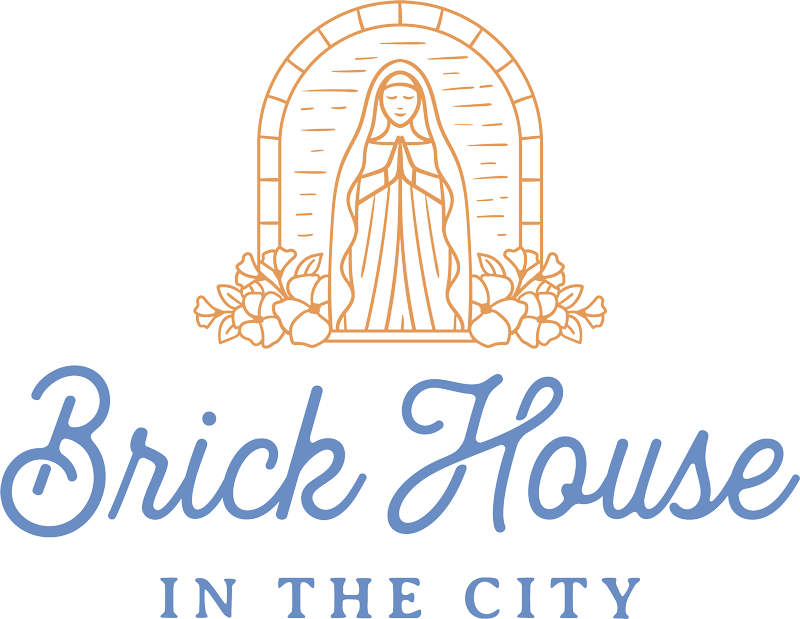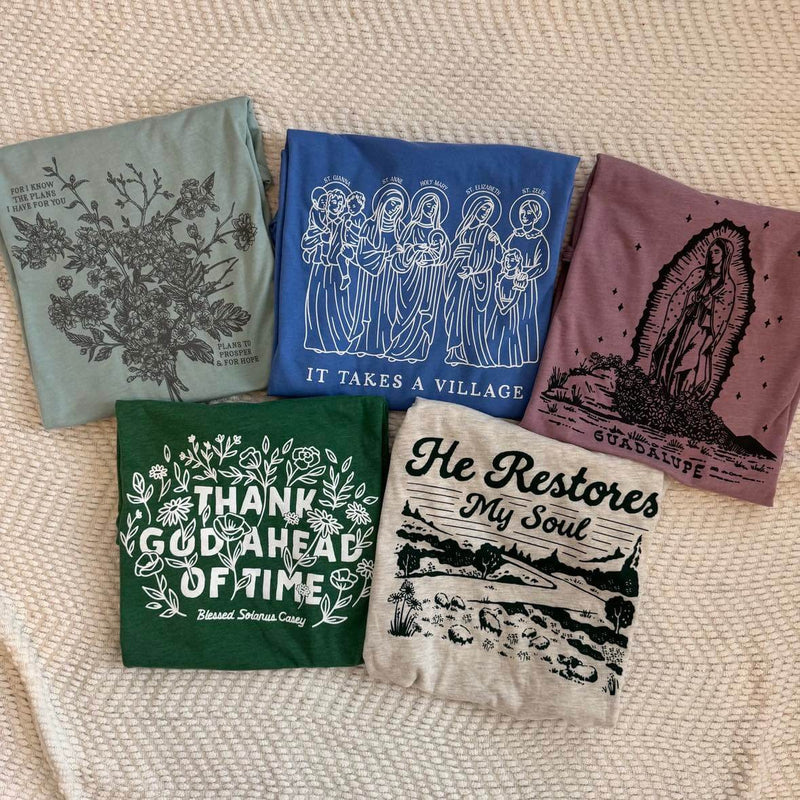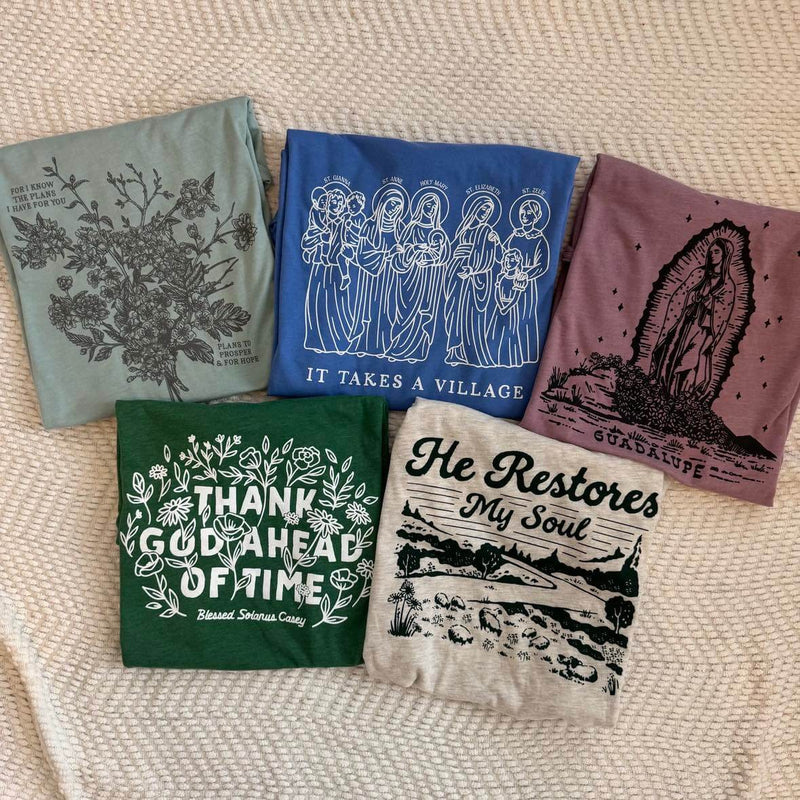Guest Post by Lindsay Schlegel5/25/2023
Happy Birthday, Flannery!
This weekend we’ll observe Palm Sunday and the beginning of Holy Week. In another year, we’d celebrate the Feast of the Annunciation on March 25 (this year it’s moved to April 9, the day following the Octave of Easter). March 25 was also Flannery O’Connor’s birthday. While it’s not an official holy day, I’m planning to take a little time to celebrate this woman often hailed as one of the greatest writers of the twentieth century and a devout Catholic through and through.
I studied English at a Catholic university, but somehow didn’t manage to learn much about our lady Flannery while I was there. I did meet a girl whose name legitimately was Flannery O’Connor, but that’s about as close as I got. I wish I’d read the works of the original Flannery, since her genius isn’t always apparent on first read, and honestly, I’ve struggled with some of her fiction when trying to tackle it on my own. But the more I learn about this woman, the more I want to appreciate what she created.
Flannery lived only to age thirty-nine (her last thirteen years were spent living with lupus), and in that time wrote 32 short stories, two novels, and a heck of a lot of letters and essays. Her fiction can be tough to get into (and she knew it!), but her nonfiction lays things out pretty clearly. She saw the desperate need we all have for Christ, and she knew many people weren’t aware of it or didn’t know what to do with it. In her stories, she portrayed that in a way that a lot of people didn’t understand—maybe because the mirror was being held a little too closely. Her fiction isn’t light beach reading; it’s real, honest, and raw. If you feel like you’re not getting fed spiritually by the media you’re consuming as entertainment, it might be time to meet Ms. O’Connor.
This honesty and frankness is what I admire most about her. She saw what culture needed and she used her gifts to contribute to bringing others to salvation, even when it wasn’t easy. Even when she wasn’t understood. Sounds a lot like a disciple to me!
She expresses this sense of integrity in an essay on fiction writing she wrote for America: “When people have told me that because I am a Catholic, I cannot be an artist, I have had to reply, ruefully, that because I am a Catholic I cannot afford to be less than an artist.” Makes you want to high five her, right?
She had a true understanding of her vocation and, probably in large part because she had a deep prayer life, had the courage to pursue it. Fr. Damian Ference writes at the Word on Fire blog:
“O’Connor knew that her primary vocation was to be a disciple, to follow Jesus. But she also knew that her particular vocation was to be a writer. Someone once asked her, “Miss O’Connor, why do you write?” She quipped, “Because I’m good at it.” O’Connor wasn’t being cocky or arrogant – she was telling the truth. . . . She also knew that since her ability to write was a gift, she needed to glorify God with her writing.”
Wowza. This makes me consider what gifts I have that I should be using to glorify God and what’s getting in the way. My own pride? A misunderstanding of true humility? Flannery knew what she was good at, she worked hard to be better at it, and she knew that because it was a gift, she needed to give it back to God.
Fr. Ference also writes this, “Her stories flowed out of her Catholic living. They grew out of her active liturgical life, her personal prayer life, and her daily disciplines. Her writing was the fruit of her fidelity to her vocation.”
That’s how I want to live my life, and how I want to encourage my friends and raise my children to live theirs: so that faith is apparent in how we live. Whatever gifts we have, we can’t hide them. We need to use them with humility and courage, so that the Father’s light can shine through us, like our Blessed Mother did with her fiat at the Annunciation, like Flannery (whose first name was actually Mary!) did with her art.
If Flannery doesn’t have a place on your shelf yet, maybe it’s time she did.





